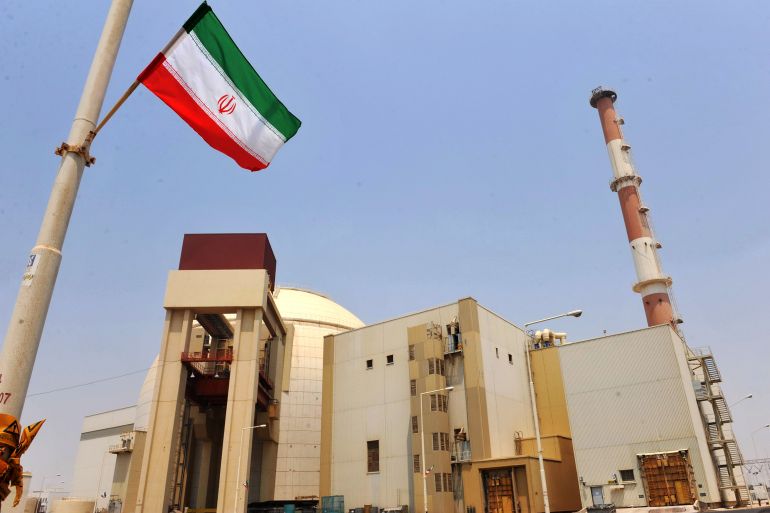US, Iranian officials held talks in Oman in May: Media reports
Omanis shuttled between two delegations, which did not meet, Axios reports.

United States and Iranian officials have held indirect talks in Oman to further discussion over Tehran’s nuclear programme and other issues, the US-based news outlet Axios reports.
White House Middle East coordinator Brett McGurk travelled to Oman on May 8 while Iran’s delegation – which included top nuclear negotiator Ali Bagheri Kan – was also in the Gulf nation, according to Axios, which cited three unnamed sources.
Keep reading
list of 3 itemsFive years after Trump’s exit, no return to the Iran nuclear deal
Where does the Iran nuclear deal stand right now?
Omani officials relayed messages between the two sets of diplomats, who were in separate locations, Axios said, adding that US President Joe Biden’s administration in April had floated the idea of an “interim agreement” with Iran on its nuclear programme.
‘Not a secret’
Iranian foreign ministry spokesman Nasser Kanani said at a press briefing on Monday that the “Muscat negotiations were not secret”, according to Tasnim News.
“We welcome the efforts of Omani officials, and we exchanged messages with the other party through Oman,” Kanani said.
He stressed that there was no intent to negotiate an interim agreement separate from the 2015 nuclear deal signed between Iran and world powers, which faltered three years later when then-US President Donald Trump withdrew from it. Under that agreement, Iran agreed to restrictions on its nuclear programme in return for the lifting of sanctions.
The Reuters news agency reported that a US official speaking on the condition of anonymity said Tehran and Washington were not discussing an interim agreement at the moment and any such news was “false and misleading”. Its report did not acknowledge or provide any details on the talks in Oman.
But Reuters quoted the official as saying it had been communicated to Iranian officials what steps could potentially lead to further tensions.
Axios reported that the US had warned Iran it would face serious consequences if it enriched uranium to a purity of 90 percent, the level required to build a nuclear bomb.
Tehran has denied it has any ambitions to build a bomb. Supreme Leader Ali Khamenei said on Sunday that Islamic values precluded Iran from pursuing a weapon of mass destruction and he was in support of a nuclear deal so long as it preserved Iran’s current nuclear capabilities.
“Make sure the infrastructures of the nuclear industry remain untouched,” he said during a visit to an exhibition showing advanced Iranian IR-6 centrifuges, which are used to enrich uranium.
There has been no significant movement on efforts to restore the 2015 nuclear agreement despite several rounds of talks to salvage it. Western nations accused Iran of derailing the talks last year.
On Tuesday, Israeli Prime Minister Benjamin Netanyahu told the Knesset’s Foreign Affairs and Defense Committee that Washington will not fully return to the 2015 deal with Iran but was instead discussing a “mini-deal” with Iran, Israeli media reported.
“What’s on the agenda at the moment between Washington and Tehran is not a nuclear deal. It’s a mini-deal,” Netanyahu was quoted as saying. “We will be able to handle it.”
According to the Israeli media outlet Walla, Netanyahu said one of the US demands was that Iran not enrich uranium to a purity of more than 60 percent, its current level of enrichment.